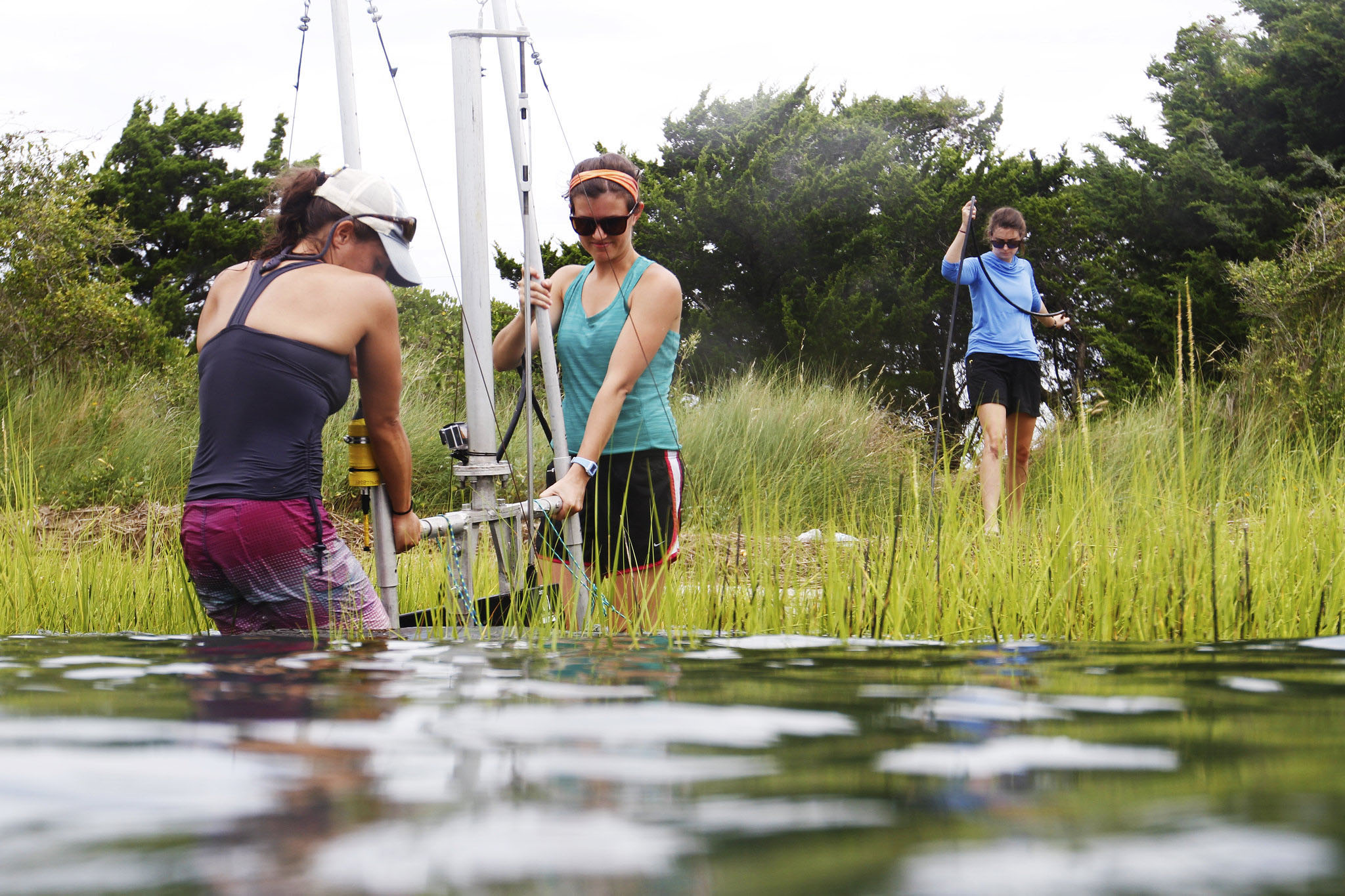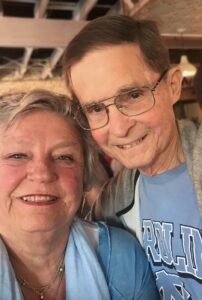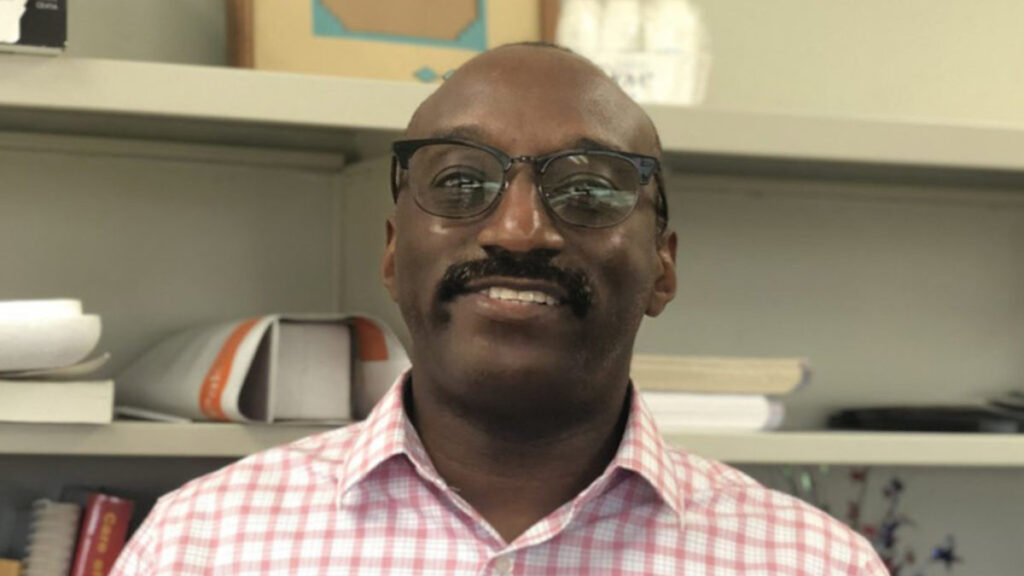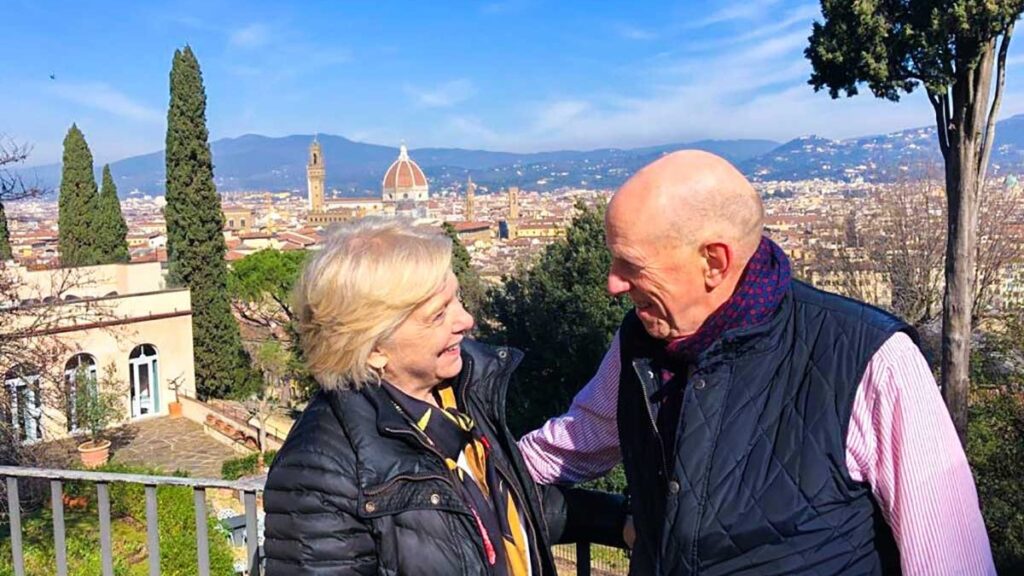The Cross-Pollination of Science at Carolina
January 18, 2023

Graduate students perform research on local living shorelines through the UNC Institute of Marine Sciences. (photo by Mary Lide Parker)

“For a small-town boy from eastern North Carolina, UNC in the 1960s was a thriving, fascinating environment – socially, scientifically and politically. The growing geology department moved from New East to the new Mitchell Hall, and I was fortunate to experience an excitement that has never left me!” said Tillman Cooley ’65, (Ph.D. ’70).
“Carolina Geology provided a fantastic foundation for both my career and my lifelong interest in science. Chiefly providing that foundation were my major professors – Walter Wheeler, Roy Ingram and Dan Textoris – working in a collegial and synergistic manner. That cross-cultural experience was vitally important in the team environments pervasive in the energy industry.
“My doctoral work at UNC also emphasized this work culture – we even added an NC State soil science professor to my dissertation committee. Through my time at Carolina, I was among fellow students with very diverse backgrounds and interests. They were my best friends then and still are! Having fellow scientists sharing our UNC experience provided a wonderful, life-long camaraderie.
“Now in retirement, I’m fortunate to spend summers on the Outer Banks at Nags Head. As a scientist, I could hardly ask for more than the confluence of sand, sun and sea! Seeing waves, dunes, tidal flats and marshes daily always rekindles my excitement and causes one to reflect on the environment and how rapidly it is changing.
“All this brings me to why I support our new department of earth, marine, and environmental sciences at Carolina. Synergy is so important, and it works – I know! I’m so excited to see how our UNC scientists cross-pollinate and flourish in this system.”



